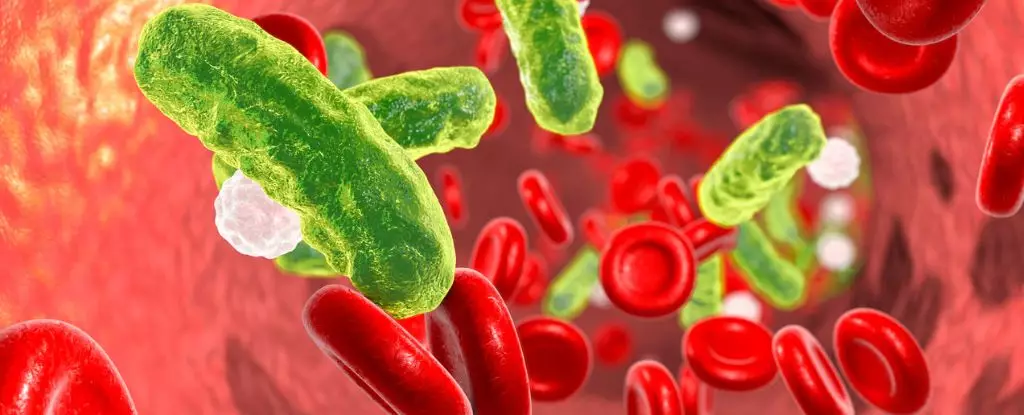In a groundbreaking discovery, scientists at Uppsala University in Sweden have unlocked a novel approach to combat drug-resistant bacterial infections. This new class of antibiotics, though currently tested only on mice, shows promising potential to address the rising threat of antibiotic resistance. Unlike traditional antibiotics that target gram-positive bacteria, this new medicine focuses on the double membrane that envelops gram-negative bacteria such as Escherichia coli and Klebsiella pneumoniae, notorious for causing a myriad of infections.
Gram-negative bacterial cells possess a tough outer membrane embedded with lipopolysaccharides, essential for cell integrity and various cellular processes. Researchers in Sweden have taken a unique approach by targeting an enzyme known as LpxH, critical for the synthesis of lipopolysaccharides. By inhibiting LpxH, which is utilized by roughly 70 percent of gram-negative bacteria, the team demonstrated the ability to effectively treat bloodstream infections in mice within just four hours with a single dose of the experimental compounds.
The initial compound, JEDI-1444, showed remarkable potential in hindering gram-negative bacterial growth. However, it faced challenges in solubility and stability in blood. Through modifications, researchers developed two advanced variations, EBL-3599 and EBL-3647, exhibiting potent antimicrobial activity against a wide spectrum of drug-resistant E. coli and K. pneumoniae isolates, regardless of their resistance genotypes. This critical advancement is significant in the context of mounting resistance to existing antibiotics among these dangerous bacteria.
The urgency of developing new classes of antibiotics cannot be overstated, as antibiotic-resistant infections have become a leading cause of global mortality. With the alarming projection of ten million deaths per year by 2050 due to antibiotic resistance, the need for innovative solutions is more pressing than ever. The current scenario, where half of available antibiotics are modifications of century-old drugs, underscores the importance of initiatives like the recent breakthrough in targeting drug-resistant gram-negative bacteria.
WHO’s Alert: Combatting Drug-Resistant Pathogens
In 2017, the World Health Organization (WHO) identified drug-resistant gram-negative bacteria as top threats among dangerous pathogens. The emergence of antibiotic-resistant strains, including E. coli and K. pneumoniae, poses a significant challenge to public health, necessitating the development of effective antibiotics that can combat these evolving pathogens. By targeting enzymes like LpxH, which play a crucial role in the survival of gram-negative bacteria, researchers are paving the way for innovative treatment strategies to address this critical global health crisis.
The recent discovery of a new class of antibiotics that target drug-resistant gram-negative bacteria marks a significant milestone in the ongoing battle against antibiotic resistance. With further research and development, these innovative compounds have the potential to revolutionize antibiotic therapy and save countless lives threatened by increasingly resistant bacterial infections. The collaborative efforts of scientists, researchers, and healthcare professionals are vital in addressing the urgent need for novel antibiotics to combat drug-resistant pathogens and safeguard public health in the face of a growing global crisis.



Leave a Reply